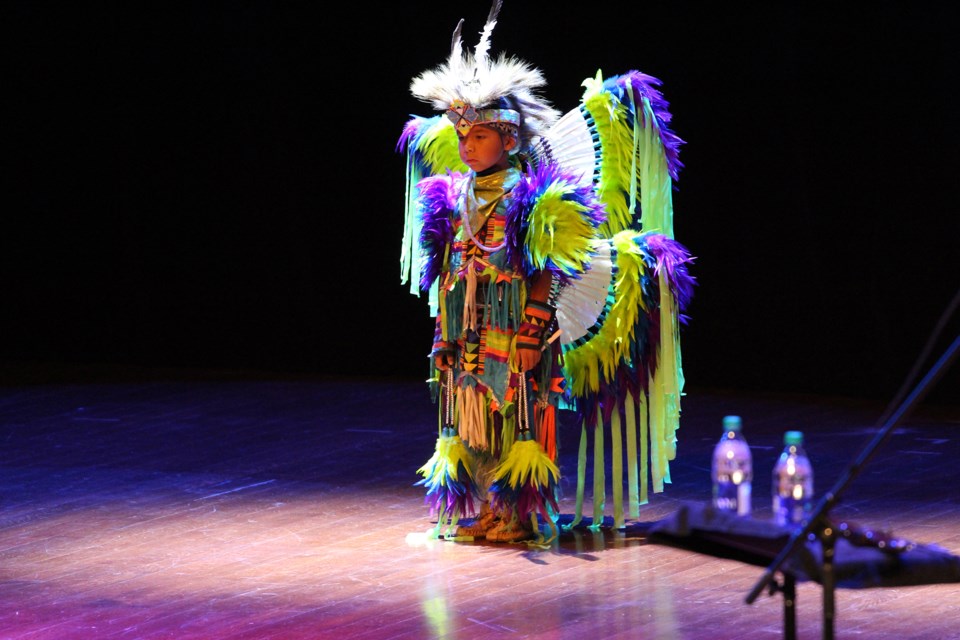With climate change being at the forefront of the news and topping the platforms of future elections, it’s only natural that Empathic Traditions: Honouring Mother Earth is the theme for the upcoming third annual, Celebration of Nations 2019 running from Sept. 6 to 8 in St. Catharines.
The three-day festival offers about 40 free events, including music, dance performances, workshops, outdoor artisan markets, food vendors and an activity zone for children and big kids alike. Many of them are free. This event, which seems destined to become a tradition, unites cross-cultural learning of Indigenous peoples and their arts that connect them to the environment.
While their culture has always been in tune with nature, Tim Johnson cites climate change, extreme weather patterns, and recent reports from the United Nation’s noting the loss of certain animal species, are several reasons the environmental theme was chosen for this year.
“We’ve recruited a group of prestigious allies who are working hard to address the complex environmental issues that are challenging the health of our living earth.”
For this event, Johnson said its organizers have consulted with professors at Brock University, and officials from the Canadian Biosphere Reserves Association, Centre for Climate Change Management at Mohawk College, and the Niagara Parks Commission, just to name a few. "In addition, we’ve asked our participating artists to present creative works that reflect upon this year’s theme, ” which focuses on the sustainable environmental issues that everyone shares.
Johnson notes the “Alarm bells are going off,” but the response has been “inadequate,” to date. So, this year’s programming has a number of concepts “woven throughout the program to protect the environment. Six Nations of the Grand River have a partnership with Samsung Canada and have created an energy park that can power 60,000 homes,” said Johnson, adding, “These are stories that nobody knows about.”
With the use of windmills and solar panels, they are able to create a more green-friendly energy use.
In the past two years, Johnson said the workshops are “really well received. It establishes St. Catharines as a gathering place for Indigenous peoples.”
He added that it was particularly fitting that a partner in this celebration, PAC, is located on St. Paul Street, which used to be an Iroquois trail and a transportation corridor for indigenous nations generations ago.
“It adds to the intellectual base, and It’s pretty interesting,” he exclaimed.
As a curator of many of the performing artists, Johnson said this year’s lineup includes “absolutely incredible bands, which will take people on a journey through the history of blues.”
As a part of the celebration, there are several concerts scheduled at PAC including: Down The Dirt Road, which travels back in time to unearth the roots of blues imbedded in African, Native American and European music traditions. Six-time Canadian Aboriginal Music Award-winner, Pappy Johns Band headlines, featuring Juno Award winners, Murray Porter and Harrison Kennedy. Lakota John is the opening act for Down the Dirt Road, who excels in bottleneck slide and country-blues strumming and picking.
Johnson was involved with the National Museum of the American Indian in Washington, D.C., and did a great deal of research on Natives that resulted in the movie: Rumble, The Natives That Rocked The World. The startling and amazing documentary depicts how American Indians influenced today’s sound, starting with blues legend Charles Patton, who is known as the Father of Delta Blues. It later became more known that Patton was from a mixed heritage, including African-American and Cherokee. The beginning of blues synthesized into many cultures, explained Johnson.
Other concerts include: hip-hop, gospel-rap group, WillPowr, country duo, Brothers Wilde and Dwayne LaForme performing blues in the Mann Raceway Plaza or “the Backyard,” a gathering space behind PAC.
On the classical spectrum of enlightened entertainment, Unsettled Scores is an artistic group that composes solo, chamber, orchestral, theatrical and multimedia works for many audiences. This year, they are presenting Contraries: A Chamber Requiem that tells a story of a boy and his quest to relearn his gifts after escaping the grip of a tyrannical schoolmaster. The score illustrates the experience of many Indigenous children systemically removed from homes and placed in foster care and forced to attend public schools. These teachings did not reflect Native traditions, history, language or values. Unsettled Scores has made several presentations at conferences and festivals, and conducted workshops on topics, such as inter-cultural collaboration and decolonizing through music.
The premiere of RADAR is being launched by Spy Denomme-Welch and Catherine Magowan on Sept. 7 at 7:30 p.m., exploring the violence facing Indigenous people, particularly women of “two spirit” or transgender persons. The composition is written for oboe, bassoon, horn, bass trombone, guitar and timpani. Johnson said transgender is a “subject of conversation and discourse,” just as it is in other cultures, but he views it “as a reflection of nature without prejudice.” The programming and celebration reflects “the inclusiveness” of all peoples,” he pointed out. Johnson notes he is Mohawk and Artistic Director, Michele-Elise Burnett is Metis, and there is a cornucopia of tribes represented in the upcoming celebration.
Celebration of Nations 2019 is presented by Kakekalanicks, the FirstOntario Performing Arts Centre, Celebration of Nations Advisory Council, and the City of St. Catharines to build on the Two Row Wampum teachings that promote inclusiveness, respect and understanding for all peoples. Johnson noted the event also receives grants and support from numerous agencies and other government sectors, including the Ontario Arts Council, and it requires a “huge collaboration.”
As the festival concludes and the native drum takes its final beat, “We want people to enjoy the richness of Indigenous culture, and this year we especially want people to learn about building a sustainable future. Those are the two big things for this year.”
Visit the website for the event schedule and numerous workshops that range from making medicine pouches, birch bark baskets to beaded bracelets and necklaces. There are also several soul-inspiring and informational sessions on the environment and music.



